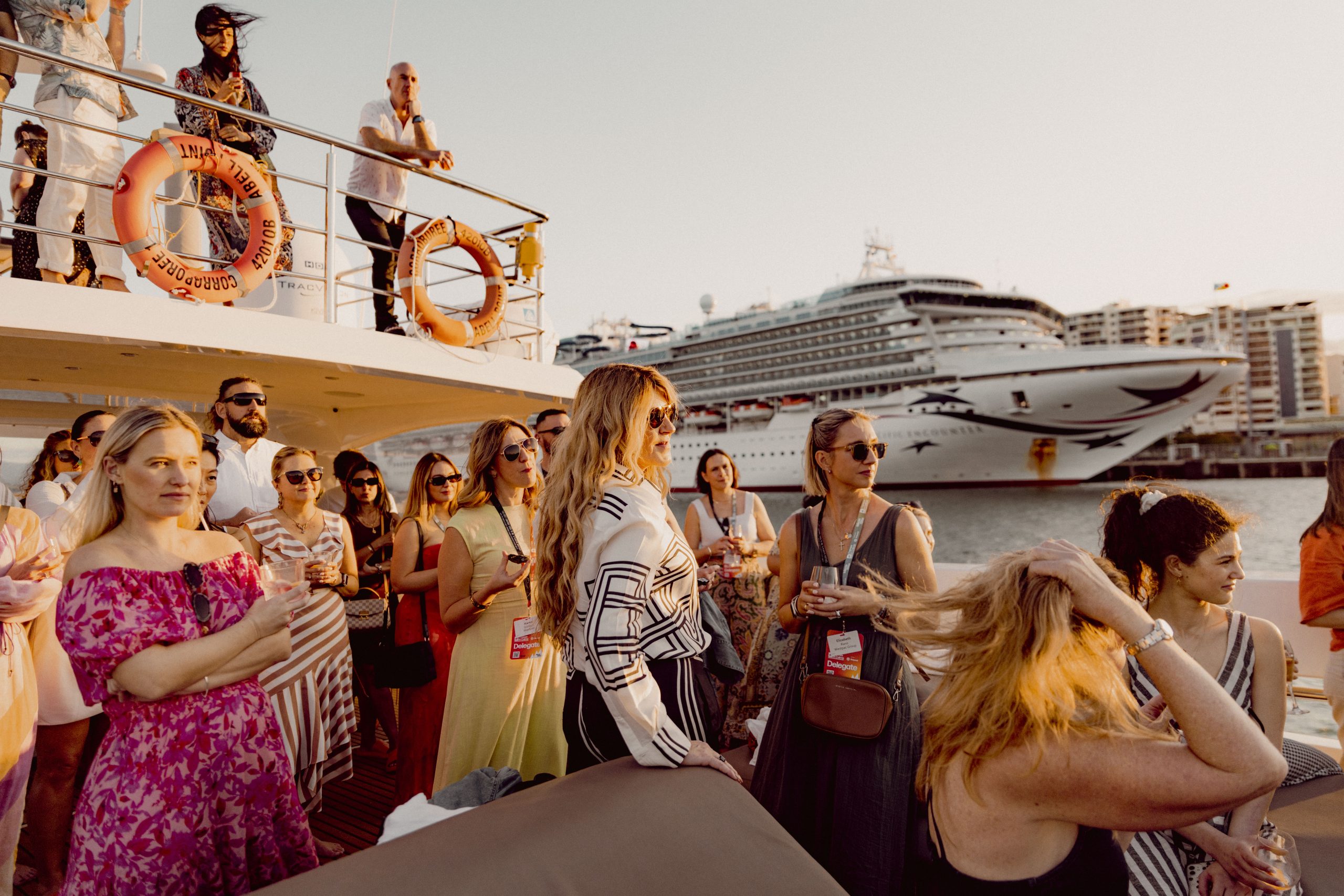Safety Covered
 Organising any meeting or event of significant size is a logistical challenge. From location to delegate entertainment, travel to equipment requirements, the checklist is long and detailed. Everything is geared to ensure that attendees are entertained and informed, but also safe. Yet, with multiple parties often involved in the practicalities of an event – from venue, organiser, destination management company and so forth – who is ultimately responsible for the safety of delegates and what level?of insurance is needed to cover for any untoward eventualities?
Organising any meeting or event of significant size is a logistical challenge. From location to delegate entertainment, travel to equipment requirements, the checklist is long and detailed. Everything is geared to ensure that attendees are entertained and informed, but also safe. Yet, with multiple parties often involved in the practicalities of an event – from venue, organiser, destination management company and so forth – who is ultimately responsible for the safety of delegates and what level?of insurance is needed to cover for any untoward eventualities?
Everyone’s responsibility
Just as putting on the event in the first place is a complicated matter, so too can be the safety and insurance arrangements. Ultimately, all parties are responsible for their own actions.
Brian Kirsch, managing director of event insurance specialists Event Assured, says: “There are three main areas of risk: the first is the value of the event itself and what can happen if it gets affected or cancelled; the second area is the property used for the event – audio-visual, computer registration, etc; and thirdly, there are the legal liabilities – what happens if someone gets injured or something gets damaged? Each of these areas can be the responsibility of more than one party.”
The first step is everyone being aware of their own responsibilities. Ong Wee Min, chief operations officer of Suntec Singapore International Convention & Exhibition Centre, says: “We require organisers to have third-party insurance to cover their contractors and clients. As every event is unique, the type of insurance that the organisers take up varies. In general, it will cover work safety, public liability, fire and theft. For events that require additional security considerations, we work closely with clients and government agencies to ensure that the event is not compromised in any way.”
Gene Capuano is the vice-president of convention and exhibition operations at The Venetian Macao Resort Hotel. He says any “standard activity” provided by the hotel for guests will mean that the venue is ultimately responsible for the guests and their safety. Beyond that, it is not about sharing responsibility between the separate organisations involved but covering individual responsibility.
“The venue must have insurance and we, as the venue, require any and all companies that would like to hold MICE events on our property to have insurance,” he says. “Lets talk hypothetically; XYZ Company is bringing its sales force to our venue for its annual sales meeting. We will ask for a copy of their insurance policy to make sure they have coverage in case they damage our property; do they have any employees conducting activity that is not a normal activity and would not be covered under our policy? If XYZ uses any outside contractor, it would either have to have them covered on its insurance, or, that contractor must provide proof that it has its own coverage.”
Factor safety at the planning stage
From an organiser’s perspective, Rajani Nair Deb, chief marketing officer for KW Conferences, recommends the organising committee performs thorough site inspections early to ensure the venue passes international safety standards.
As well as the importance of who is liable for what, there can also be regional factors that need to be considered. Nair Deb explains that the event insurance concept is relatively new in India, but he is seeing a steady rise in requests from organisers to budget for it at the concept stage.
“The region definitely has an impact on the availability and cost of insurance. In India, insurance providers may not want to cover a rural or remote area. Events held in major political hubs, such as New Delhi, would also be slightly more expensive to insure because security and government clearance for the venue may be more time-consuming.”
He says typically the premium for the insurance is about 1-1.5 per cent of the entire event budget. If the event involves elected officials or international associations such as the UN or World Bank, the insurance cover would be even more thorough with greater emphasis on security procedures.
Expect the unexpected
Another regional factor can be environmental considerations. Any heightened risk of natural disaster such as earthquake, tsunami or flooding can impact on insurance cover. “In certain countries, life becomes more complicated if you want to insure against risks where there is a known hazard, for example potential earthquakes in Japan or New Zealand,” explains Event Assured’s Kirsch. “It doesn’t mean it’s impossible, but it can be very expensive.”
Kirsch explains that often it’s not the risk organisers imagine that actually causes a problem. “We insured a big corporate conference held in Australia. The client was concerned about terrorist attack and wanted to cover closure of air space; it was quite expensive and so they decided not to buy it. We then had a claim on this event when the people travelling back to Japan from Australia couldn’t leave because Tokyo airport was closed by bad weather. All their focus had originally been on the terrorism issue, but something else happened! People think one risk is particularly important to them but something else can come out of nowhere.”
 Rob Barron, assistant vice-president, accident, health, sports & contingency at insurers Lockton Companies LLP, advises clients to “get event cancellation insurance in place as early as possible. One problem associated with purchasing event cancellation insurance at the last minute, or after a peril has become known, is that underwriters will look to exclude ‘known perils’ from cover, or they will charge extra for covering this risk. We received a rush of enquiries following the floods in Thailand – but underwriters excluded flood risks from event cancellation policies required in the flood zones, and clients had to buy specific flood risk cover, as an ‘add-on’ to their event cancellation cover.”
Rob Barron, assistant vice-president, accident, health, sports & contingency at insurers Lockton Companies LLP, advises clients to “get event cancellation insurance in place as early as possible. One problem associated with purchasing event cancellation insurance at the last minute, or after a peril has become known, is that underwriters will look to exclude ‘known perils’ from cover, or they will charge extra for covering this risk. We received a rush of enquiries following the floods in Thailand – but underwriters excluded flood risks from event cancellation policies required in the flood zones, and clients had to buy specific flood risk cover, as an ‘add-on’ to their event cancellation cover.”
For the venues, uncertainty can come with the type of event clients want to put on in their facilities. So while property and bodily harm are standard items for insurance purposes, there are requests that may fall outside the standard remit.
“If a client wants to fly its CEO from a wire on the ceiling down to the stage, we get into insurance issues,” says The Venetian Macao’s Capuano. “As the venue, I am not comfortable with flying a CEO from a wire in our ballroom. I would then create a waiver that they must sign stating we do not cover it and it is out of the scope of our insurance cover. They would need to approach their insurance company to do the same.”
“Pyrotechnics is another example,” adds Capuano. “My procedure is to make sure the company doing the pyro is licensed with its own insurance. I would then conduct a demo prior to the event where my Fire and Safety team could determine if it was safe and sound.”
The bottom line
So is it always possible to get insurance? In the main yes, but in some instances as discussed, it will be expensive because of known risks. However, venues may turn down requests, or suggest modifications on the grounds of safety. At The Venetian Macao, one client wanted an elephant for a ceremony taking place there. Macau had no elephants in its zoo, and there would have been major quarantine issues in bringing one in. In the end, they settled for a horse, and even then, it could only be used outside, not inside the venue. “We had to work with the Jockey Club in Macau, a lot of paperwork was involved specific to the horse’s safety and having a trainer on hand at all times, but we worked it out,” says Capuano.
There are specialists who have come across most eventualities and requests. Mark Symons, contingency underwriter for the Beazley Group, sums up nicely just what organisers need to think of most. “The main considerations should be: what are the critical success factors for the event to take place? Does the event depend on a key speaker or international delegates? Is the event taking place in an area prone to natural catastrophes? Is civil commotion a potential issue? It’s wise to go with experienced specialist insurers and brokers, as they can help guide you through the issues and get cover at a price within budget.”
With myriad possibilities to cover, the issues of safety and insurance can seem a daunting prospect, but whether you use the services of professionals or go it alone, the old adage remains true: Expect the best, but plan for the worst… and never stint on matters of safety.

CASE STUDY
Better safe than sorry
The 69th World Association of Newspapers Congress, Hyderabad – December 2009
In February 2009, the political threat increased in the Indian state of Andhra Pradesh as it was divided into two states – Andhra Pradesh and Telangana. As strikes began and riots broke out, there was widespread unrest in the state which affected the city of Hyderabad. The date set by the government for a decision on this statehood issue was the beginning of December – the exact dates during which publishers from across the world would arrive in Hyderabad for the World Association of Newspapers Congress.
The risk perception of this event grew tremendously because of the profile of the people attending and the ongoing political crisis. As a consequence KW Conferences, jointly with the insurance company and the venue, covered all aspects of reinforcing security cover and insuring the entire event against a last-minute change of venue.
DOS AND DON'TS
• DO make attendees’ safety your first priority.
• DO check the destination to gain an idea of any associated threats.
• DO conduct a site inspection before booking the venue.
• DO thoroughly research the organiser or DMC’s qualifications before using them.
• DO research the political stability of the host country before arranging an event there.
• DON’T buy event insurance before clearing it with your legal team.
• DON’T base a decision purely in terms of the budget – get reviews from fellow colleagues.


